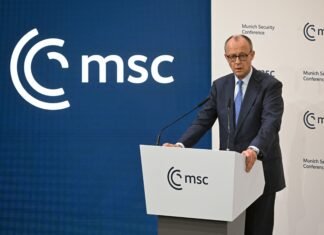Siegfried Mureșan, a prominent Romanian politician, recently expressed his concerns regarding the potential presidency of Călin Georgescu in Romania. Mureșan warned that if Georgescu were to assume the role of president, it could lead to an immediate halt in European Union funding for the country. He drew parallels with Hungary, which has faced significant obstacles in accessing EU funds due to its government’s controversial actions.
Mureșan highlighted that Hungary, under Prime Minister Viktor Orban, has had over 20 billion euros in EU funding blocked. This blockage has arisen due to Orban’s confrontational stance against judicial independence and other key institutions. Mureșan is particularly concerned that if Romania were to follow a similar path under Georgescu’s leadership, the nation might also find itself in a precarious situation, unable to tap into vital European funds that are essential for various development projects and initiatives.
He emphasized the importance of maintaining a stable democratic framework and respecting the rule of law to preserve Romania’s access to EU financial support. The EU has stringent criteria for member states regarding governance, democratic institutions, and the rule of law. Any deviation from these principles can trigger sanctions, including the suspension of funding, which can have dire consequences for national development and the economy.
Mureșan’s statement serves as a warning to the Romanian electorate about the potential ramifications of electing a leader who may not prioritize European integration or who may challenge the democratic norms upheld by the EU. He believes that the choice of leadership is crucial not only for Romania’s future but also for its relationship with the European Union.
Part of Mureșan’s argument centers on the fact that Romania has a lot to gain from the EU, not only in terms of financial support but also in establishing a stronger presence on the European stage. EU funds have been instrumental in various sectors, including infrastructure, social programs, and economic development initiatives. These investments have helped to modernize the country and improve the quality of life for many Romanians.
As political tensions rise in the region, Mureșan’s comments remind voters of the broader implications of their electoral choices. The upcoming presidential election could shape the direction of Romania’s policies and its alignment with European values. He encourages voters to consider the long-term consequences of electing a president who may lean towards autocratic governance or undermine judicial independence.
In conclusion, Siegfried Mureșan’s strong stance against the potential presidency of Călin Georgescu is rooted in a desire to protect Romania’s standing within the EU and preserve access to crucial funding. Drawing on Hungary’s experiences, he emphasizes the need for accountability, respect for democratic institutions, and adherence to EU standards. As the election approaches, Romanians are urged to weigh their options carefully, bearing in mind the profound impact their choice could have on the nation’s future and its relationship with Europe. Access to EU funds is not just a financial matter; it is about the values and commitments that define Romania’s place on the European map.






